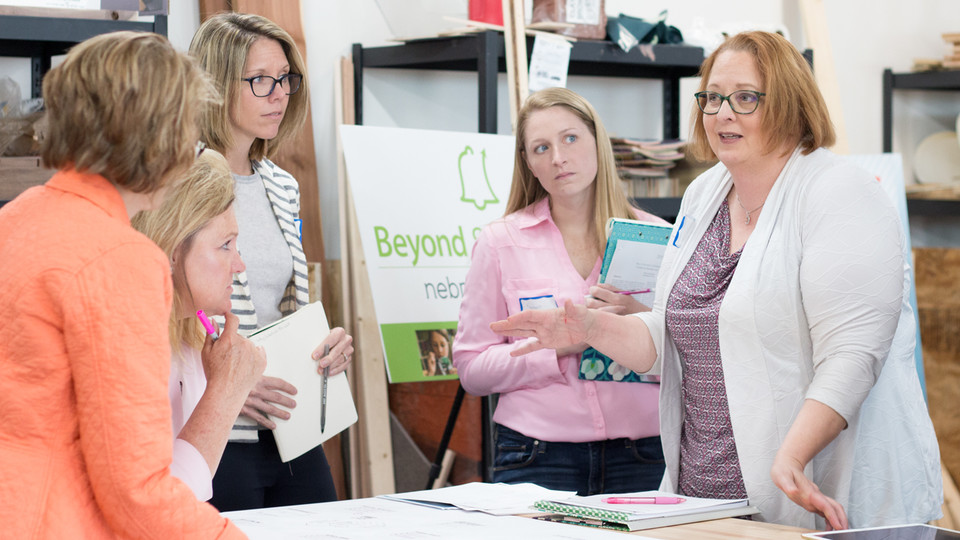Tiffany Lee, February 20, 2018 | View original publication
Researchers evaluate rural Nebraska after-school programs
Brainstorm, develop, implement, modify and repeat. As rural Nebraska school districts use this adaptable approach to create after-school programs, a University of Nebraska-Lincoln research team is taking similar steps to evaluate their progress.
The team consists of researchers from the Nebraska Center for Research on Children, Youth, Families and Schools.
They are joining a 30-month project, Expanded Learning Opportunity Design Challenge, which involves Auburn, Beatrice, Boone Central, Centura and Grand Island school districts.
Teachers and administrators from each district are developing after-school and summer programs for K-12 students, with a focus on integrating science, technology, engineering and mathematics.
“Compared to traditional evaluations, we’re not coming in and collecting data and staying separate from the project,” said Leslie Hawley, project evaluator and CYFS research assistant professor. “We see ourselves as part of the team, helping improve programs along the way. We’re working with school districts through all stages of this iterative process.”
The CYFS team is traveling to each site, learning about the programs, asking questions and providing individualized feedback.
“It’s fun to go and see how kids are interacting with different curricula and see how staff are responding,” said Michelle Howell Smith, project evaluator and CYFS research assistant professor. “We want to balance consistency with flexibility, because at the end of the day, we want this project to be meaningful for these five communities.”
All participating school districts will also contribute to an “electronic toolbox,” a website featuring details about each team’s approach to hiring and staffing, financing, program content, and data collection and reporting.
CYFS evaluators will contribute surveys, curriculum suggestions and structured evaluations.
At the end of the project, that toolbox will be available for all Nebraska school districts. It is a resource other districts can use to independently build, customize and evaluate their own programs, Hawley said.
“We want to see what works well in the field so people in different Nebraska counties and schools can learn from the experiences of these five districts,” Hawley said. “We want to build a good foundation. Our goal is to create programs that are exciting for youth and sustainable for communities.”






